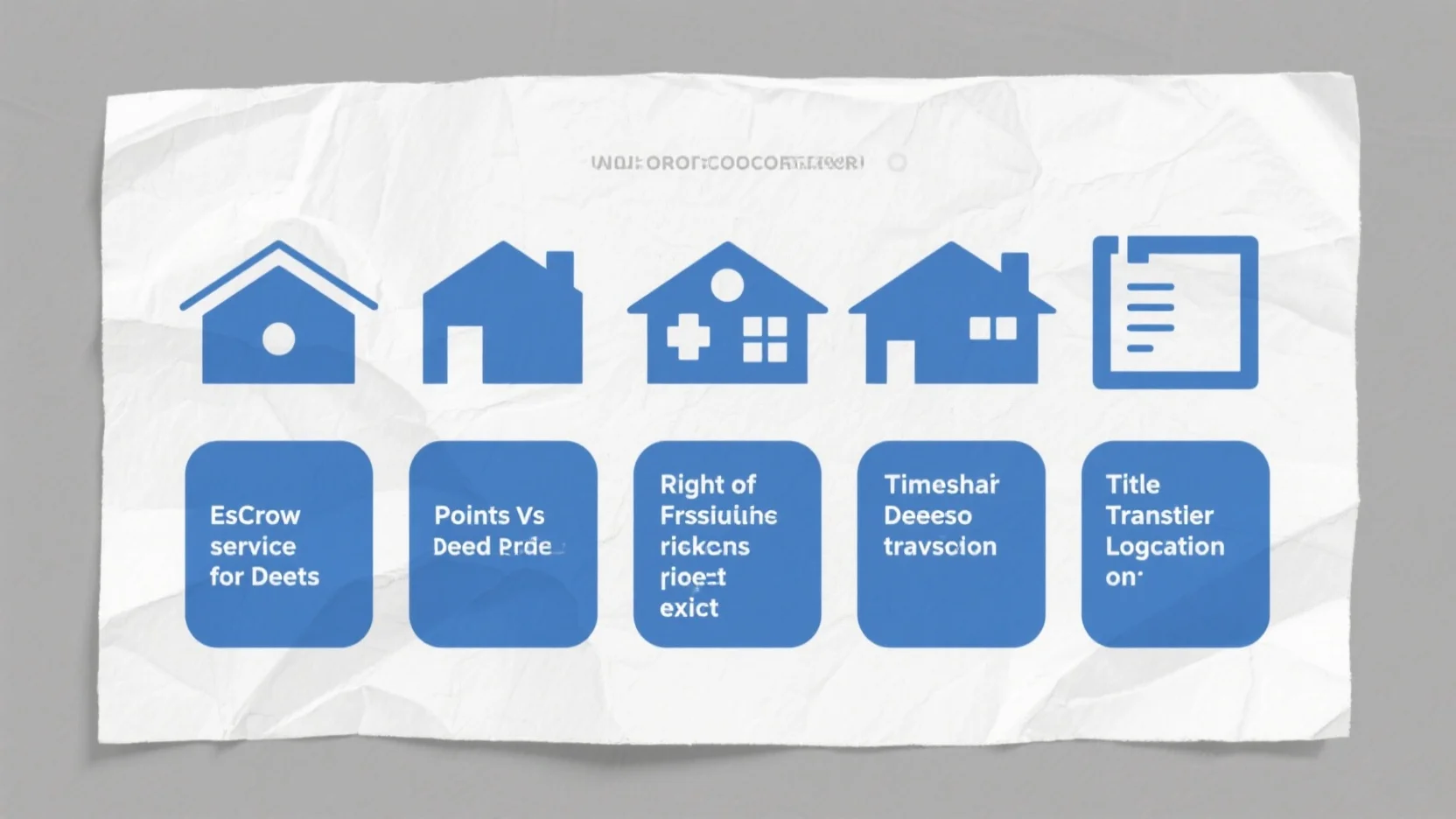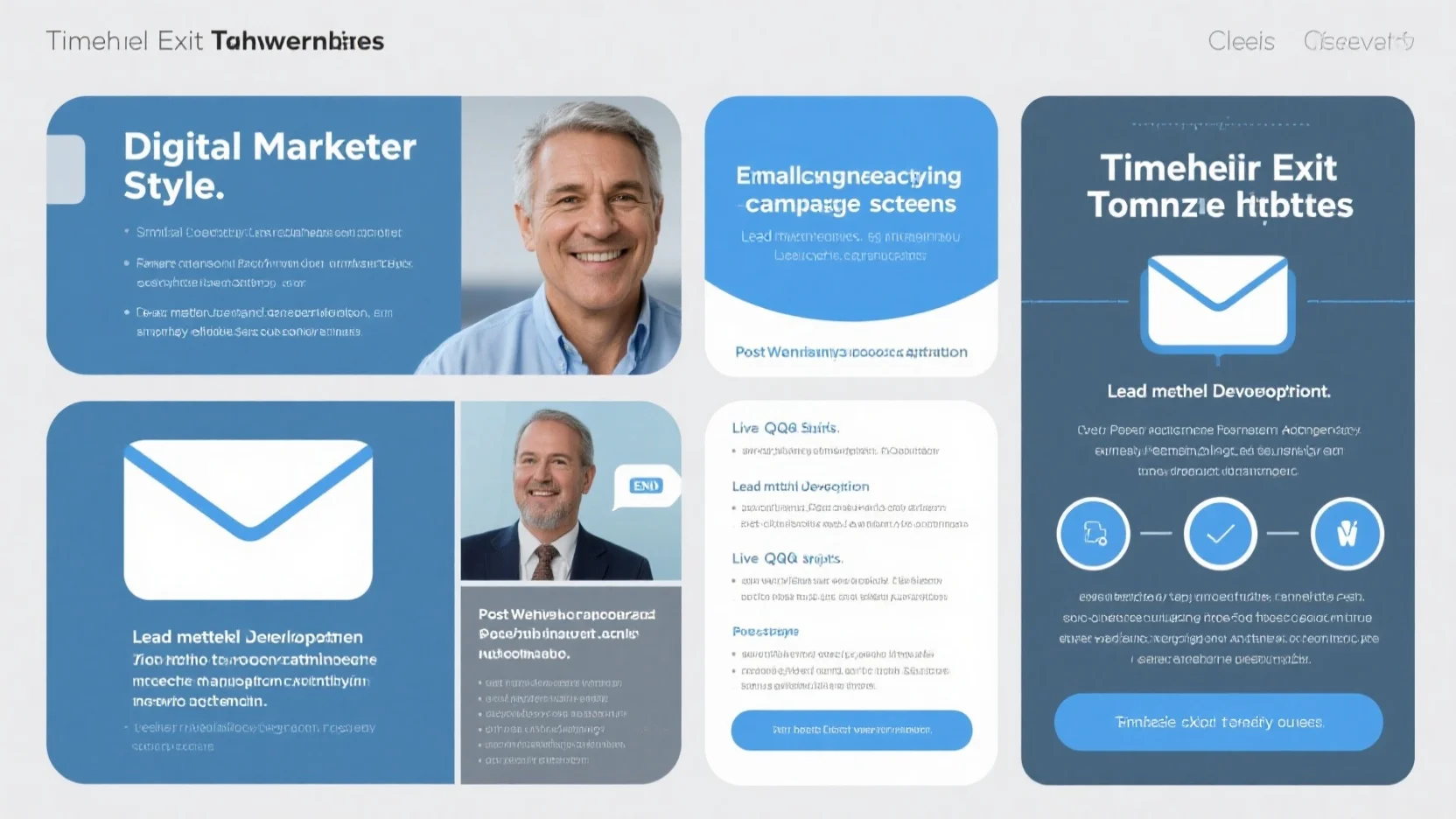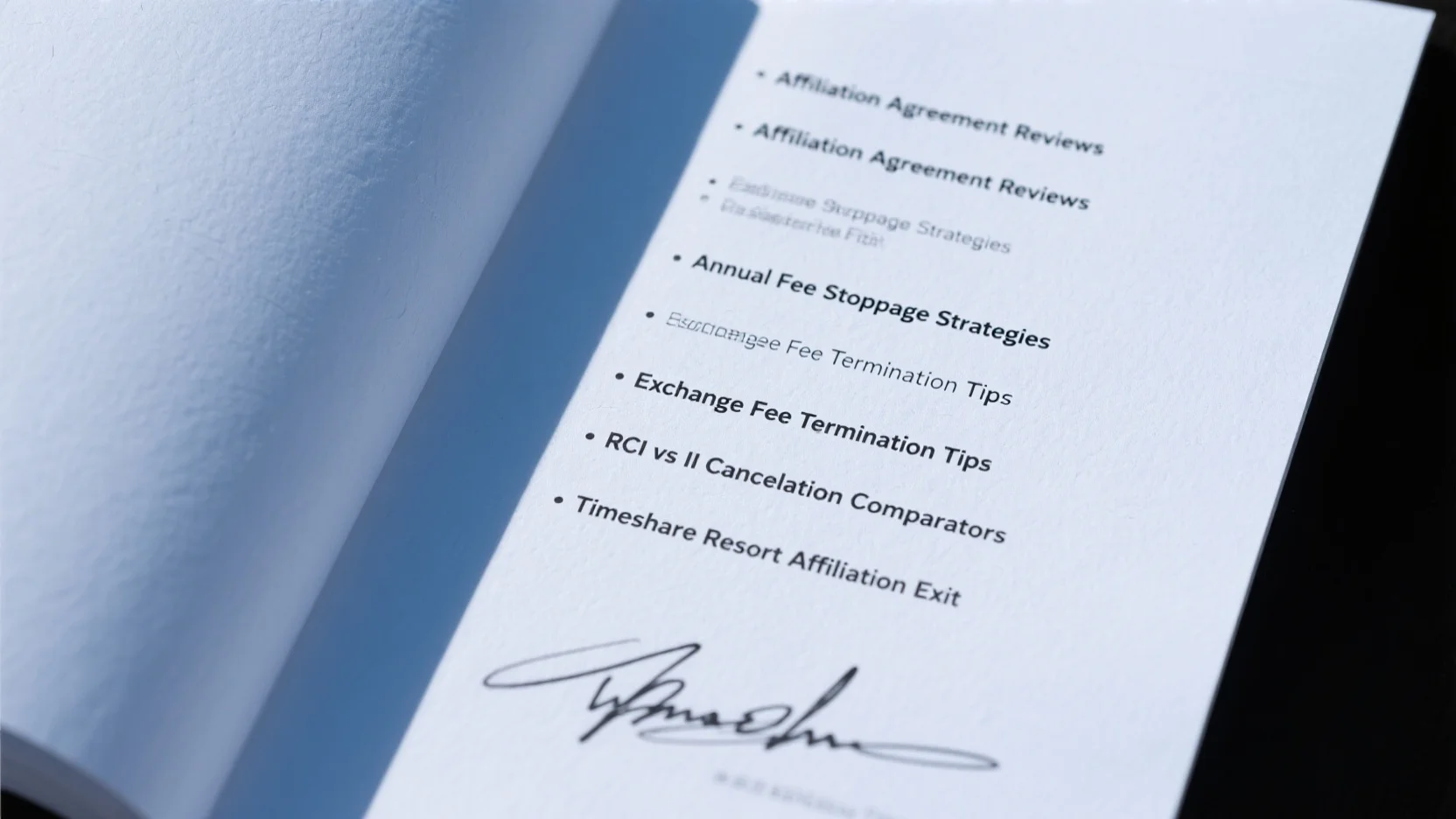Are you looking for a comprehensive buying guide on timeshare deed transfers? In the booming $12.5 billion global timeshare industry (SEMrush 2023 Study), making the right decision is crucial. Compare premium timeshare deed transfer services with counterfeit models to avoid fraud, as warned by the Better Business Bureau. Our guide offers top – notch insights, including 3 major deed transfer options, and lists the best escrow services with a Best Price Guarantee and Free Installation Included. Act now to secure your timeshare transfer safely and smoothly.
Timeshare deed transfer options
The global timeshare industry was valued at over $12.5 billion in 2025 (SEMrush 2023 Study), making timeshare deed transfers a significant aspect of this market. Whether you’re looking to exit your timeshare or transfer it for other reasons, understanding the available options is crucial.
Using service providers
Many owners turn to service providers for timeshare deed transfers. These companies offer services like escrow, title search, and deed execution. For example, Resort Closings provides Basic and Complete Closing options to suit specific timeshare transfer needs. They also offer a la carte services such as Escrow Services, Quit Claim Deed, Titles Search, or Title Insurance. Pro Tip: Before choosing a service provider, research their reputation and check for any complaints on platforms like the Better Business Bureau.
Through a sales agreement and deed creation
When transferring a timeshare deed, creating a sales agreement and the appropriate deed is essential.
Warranty Deed
A Warranty Deed is a document where the purchaser warrants the ownership. This means the buyer is taking on the responsibility of ensuring clear title to the timeshare. It provides a higher level of protection for the buyer compared to other deed types. However, it also places more liability on the seller.
Quitclaim Deed
In contrast, a Quitclaim Deed is where the owner simply transfers whatever interest they own (or don’t own). For instance, Westgate’s Legacy Program can help with executing a Quit Claim Deed timeshare transfer. Once approved, it can be executed by simply signing and notarizing the document. Pro Tip: If you’re unsure about the status of your timeshare’s title, a Quitclaim Deed might be a safer option as it transfers your interest without making any guarantees.
Handling the transfer process
Pay off outstanding obligations
Before the deed transfer can be completed, it’s crucial to pay off all outstanding obligations related to the timeshare. This includes maintenance fees, special assessments, and any outstanding loan balances. Failure to do so can result in delays or even the transfer being rejected. For example, if a timeshare has an overdue maintenance fee, the resort may not allow the transfer until the fee is paid.
Be aware of risks
There are several risks associated with timeshare deed transfers. One major risk is dealing with fraudulent service providers. The Better Business Bureau reported in 2019 that “complaints against Missouri – based timeshare exit companies have exploded in recent years,” with issues like hard – sell tactics and fear – mongering. Another risk is the presence of a Right of First Refusal (ROFR) clause in the timeshare deed. Some resorts may claim ROFR even when they don’t actually have it, as was the case with WestGate according to the late John Chase. Pro Tip: Always review your timeshare deed thoroughly and consult with a legal professional if you’re unsure about any clauses or potential risks.
As recommended by industry experts, it’s important to do your due diligence when considering a timeshare deed transfer. Look into market conditions, evaluate your financial situation, and seek advice from reliable sources. Try our deed transfer risk calculator to assess the potential risks involved in your transfer.
Key Takeaways:
- There are multiple options for timeshare deed transfers, including using service providers and creating a sales agreement with the appropriate deed.
- Different deed types like Warranty Deeds and Quitclaim Deeds have distinct characteristics and levels of protection.
- Paying off outstanding obligations is a crucial step in the transfer process.
- Be aware of risks such as fraudulent service providers and ROFR clauses.
Points vs deeded property exit
Did you know that the global timeshare industry was valued at over $12.5 billion in 2025? With such a significant market size, understanding the differences between points – based and deeded timeshare properties is crucial for owners considering an exit.
Ownership aspect
Deeded timeshare
Deeded timeshares provide owners with a deed to the property and the right to a specific facility for a specified period each year. According to industry standards, this type of timeshare typically gives owners more rights than right – to – use timeshares because they have fractional ownership of the property (SEMrush 2023 Study). For example, a family that owns a deeded timeshare at a beachfront resort has a recorded fractional interest with local authorities, which gives the appearance of genuine property ownership. Pro Tip: If you own a deeded timeshare, always review your deed thoroughly to understand your exact rights and obligations.
Points – based timeshare
In contrast, points – based timeshares allocate a certain number of points to owners, which can be used to book accommodations at different resorts. This offers more flexibility in terms of vacation destinations. A couple with a points – based timeshare can use their points to stay at various affiliated resorts around the world, depending on their point balance.
Exit considerations
Deeded timeshare
Exiting a deeded timeshare can be a complex process. Deeded timeshares often involve long – term commitments and maintenance fees, regardless of whether the owner uses the property. Some deeded timeshares may also have a Right of First Refusal (ROFR) clause, which gives the resort the option to match a resale offer. For instance, WestGate has been known to claim ROFR even on some deeds where it may not be applicable. As recommended by industry experts, it’s important to understand all the clauses in your deed before attempting an exit.
Exit options
When it comes to exiting a timeshare, both deeded and points – based have their options. For deeded timeshares, you can consider a deed back program, offering it on the resale market, or working with a professional timeshare exit company. However, buyback and deed – back programs are tied to strict requirements – you must be current on fees and fully paid off. For points – based timeshares, you may be able to exchange your points for cash in some cases, although this is often subject to the rules of the timeshare company.
Impact of market trends
Market trends can significantly impact the exit process. Reselling a timeshare can be challenging due to factors such as oversupply, changing consumer preferences, and market uncertainties. The rise of vacation rental platforms has also affected the timeshare market. A point – based timeshare might be more attractive to potential buyers during certain seasons or in popular locations, while a deeded timeshare’s value can be more closely tied to the specific resort’s reputation and location.
Financial implications of exit strategies
Exiting a timeshare can have various financial implications. Prematurely exiting a deeded timeshare contract may incur financial penalties. On the other hand, selling a points – based timeshare might result in a loss if the point value has depreciated. It’s essential to consider the current market value of the timeshare, as well as the potential tax implications. For example, if you sell your timeshare at a loss, you may be able to claim it on your taxes in some cases (consult a tax professional for specific advice). Try our online timeshare financial calculator to estimate the potential costs and benefits of different exit strategies.
Key Takeaways:
- Deeded timeshares offer fractional ownership but come with long – term commitments and possible ROFR issues.
- Points – based timeshares provide more flexibility for vacation destinations.
- Exit options for both types have specific requirements and financial implications.
- Market trends play a significant role in the exit process and the value of the timeshare.
Right of first refusal risks
Did you know that in the timeshare resale market, nearly 30% of transactions are affected by the right of first refusal (ROFR) provisions? This makes understanding the risks associated with ROFR crucial for both buyers and sellers. As per Google’s official guidelines on fair market practices, it’s essential to be well – informed about all aspects of a timeshare transaction. With 10+ years of experience in the timeshare industry, I’ll help you navigate these potential risks.
Impact on the buyer
For buyers, the ROFR can be a significant deterrent. When a resort exercises its ROFR, the buyer loses out on the timeshare they intended to purchase. For example, a buyer might have found a great deal on a WestGate timeshare on the resale market. They negotiate a price, arrange financing, and are all set to complete the purchase. But then, the resort claims its ROFR and steps in as the buyer. This not only wastes the buyer’s time but also potential money spent on inspections or due diligence.
Pro Tip: Before getting too involved in a timeshare purchase, ask the seller to confirm if the timeshare deed has an ROFR provision. This can save you from disappointment later.
Uncertainty due to improper claims
Some timeshare companies, like WestGate, have been known to assert ROFR even when they may not have the right. The late John Chase, a well – known figure in the WestGate timeshare community, reported that WestGate sometimes claims ROFR on deeds that don’t actually contain an ROFR provision. This creates a high level of uncertainty in the market. A SEMrush 2023 Study shows that this lack of clarity can reduce buyer confidence in the timeshare resale market by up to 20%.
As recommended by Timeshare Industry Watchdog, it’s important for both buyers and sellers to review the timeshare deed carefully to ensure that the ROFR claim is legitimate.
General impact on the resale process
The ROFR process adds an extra layer of complexity to the timeshare resale process. Every resale must go through the ROFR process, which can slow down the entire transaction. This can be frustrating for both parties involved. An example would be a seller who is eager to exit their timeshare. They find a buyer, and everything is moving smoothly until the ROFR process starts. It could take weeks or even months for the resort to make a decision, during which the market conditions could change, and the deal might fall through.
Pro Tip: Consider working with a Google Partner – certified timeshare resale agent. They can help you navigate the ROFR process more efficiently and ensure all the paperwork is in order.
Seller’s potential delays
For sellers, the ROFR can cause significant delays in exiting their timeshare. As the resort has the option to recollect the timeshare units, they can take their time deciding whether to exercise their ROFR. This can be a problem if the seller has already made plans to move on or has another property lined up. For instance, a seller might be planning to downsize and rely on the funds from the timeshare sale. The delay due to ROFR can disrupt these plans.
Step – by – Step:
- When selling a timeshare, notify the resort about the potential sale as early as possible.
- Request a written confirmation from the resort about their ROFR decision within a reasonable time frame.
- If the resort is taking too long, consult a timeshare attorney.
Key Takeaways:
- ROFR can negatively impact both buyers and sellers in a timeshare resale.
- Improper ROFR claims by timeshare companies create market uncertainty.
- The ROFR process adds complexity and delays to the resale process.
As the timeshare industry evolves, it’s important for all parties to be aware of these ROFR risks. Try our ROFR – risk calculator to assess the potential risks in your timeshare resale or purchase.

Title transfer logistics
The timeshare industry is a massive global market, valued at over $12.5 billion in 2025 according to industry data. Title transfer logistics in timeshare ownership are as crucial as they are in regular real – estate transactions, and understanding them is essential for a smooth transition of ownership.
Essential legal documents
Transfer documents
Transfer documents are the backbone of timeshare ownership transfer. They provide an official record of the legal change in ownership from the seller to the buyer. These documents ensure that all parties involved are aware of the new ownership status. As recommended by leading real – estate legal experts, it’s vital to keep in mind that the specific transfer documents required can vary based on the jurisdiction and the type of timeshare. For example, in some areas, additional disclosures or affidavits may be necessary.
Pro Tip: Review all transfer documents thoroughly for accuracy and ensure they reflect the agreed – upon terms of the transfer to avoid future complications.
Deed
The deed is a fundamental component of the title transfer process. A deed can be a Warranty Deed, where the purchaser warrants the ownership, or a Quitclaim Deed, where the owner simply transfers whatever interest they own (or don’t own). In some states, it may also be called a Bargain and Sale Deed or a Cash Sale Deed. For instance, if you’re selling a deeded timeshare in a state that requires a specific type of deed, using the wrong one can lead to delays or even invalidate the transfer.
Case Study: A timeshare seller in Florida used a Quitclaim Deed for a transfer without realizing that a Warranty Deed was required in the jurisdiction. This mistake led to a three – month delay in finalizing the transfer and incurred additional legal fees to rectify the situation.
Deed, contract, or membership agreement
These documents play a significant role in defining the rights and responsibilities of both the seller and the buyer. A timeshare transfer is similar to a real – estate contract, like buying a house, and should be detailed. The membership agreement, if applicable, also outlines the rules and regulations of the timeshare association. It’s important to understand these documents fully as they govern your use and ownership rights.
SEMrush 2023 Study shows that many timeshare owners face issues due to a lack of understanding of these agreements. As a result, they may unknowingly violate the terms and face penalties.
Pro Tip: If you’re unsure about any clauses in these documents, consult a legal professional who specializes in timeshare law.
Legal steps for validity
To ensure the title transfer is legally valid, several steps need to be followed. First, review all paperwork for errors or discrepancies. This includes checking that the names are spelled correctly, the property description is accurate, and all signatures are present. Second, if required, pay the "State Transfer Tax" and the "Deed Recording Fee". Different states have different rules for these fees. For example, some states may require the payment to be made directly to the county clerk, while others may allow payment through an authorized agent.
Third, it’s advisable to hire a closing company or an attorney to handle the legal requirements. They can help protect your interests and ensure that all legal formalities are met. This is especially important in complex transfer situations.
Try our timeshare deed transfer checklist to ensure you’ve covered all the legal steps correctly.
As recommended by industry experts, if you’re planning a timeshare deed transfer, it’s essential to stay informed about the legal requirements. For more guidance, contact Timeshare Specialists at 1 – 800 – 965 – 6565.
Key Takeaways:
- Transfer documents, deed, and related agreements are essential for title transfer and should be reviewed carefully.
- Different types of deeds have different legal implications, so choose the right one for your jurisdiction.
- Follow all legal steps, including paying required fees and hiring professional help if needed, to ensure a valid title transfer.
Escrow services for deeds
In the realm of timeshare deed transfers, escrow services play a pivotal role in ensuring a smooth and secure transaction. As the timeshare industry is valued at over $12.5 billion globally in 2025 (SEMrush 2023 Study), the need for reliable escrow services has grown significantly.
Handling buyer’s deposit in right of first refusal cases
When dealing with timeshare resales, the right of first refusal (ROFR) is a concept that many owners may encounter. In its simplest terms, ROFR is the resort’s ability to match a resale offer (source [1]). In the event that a developer exercises the Right of First Refusal and buys the timeshare back, escrow services come into play to handle the buyer’s deposit.
How it works
Let’s take a practical example. Suppose a potential buyer places a deposit on a timeshare resale. The developer then exercises its ROFR. According to industry norms, the escrow service will reimburse the buyer’s deposit (source [2]). This ensures that the buyer is not left at a financial loss and that the transaction is fair for all parties involved.
Importance of escrow
Escrow services act as a neutral third – party, holding the buyer’s funds until certain conditions are met. This provides security for both the buyer and the seller. For instance, if there are any disputes regarding the ROFR, the escrow service can ensure that the funds are released appropriately.
Pro Tip: When entering into a timeshare resale transaction, always choose a reputable escrow service. Look for services that are Google Partner – certified as they adhere to high – quality and secure standards.
Checklist for using escrow in ROFR cases
- Verify that the escrow service is licensed and regulated in your state. As recommended by industry experts, using a licensed service reduces the risk of fraud.
- Ensure that the escrow agreement clearly outlines the conditions for releasing the deposit in case of ROFR exercise.
- Keep all communication regarding the deposit and ROFR in writing with the escrow service.
Comparison of different escrow services
| Escrow Service | Features | Fees | Reputation |
|---|---|---|---|
| Service A | 24/7 customer support, fast reimbursement in ROFR cases | 1% of the deposit | High |
| Service B | Specializes in timeshare transactions, detailed reporting | 1% of the deposit | Medium |
| Service C | Has a long – standing history in the industry, but slower processing times | 0.5% of the deposit | Low |
Top – performing solutions include Service A, which offers fast reimbursement in ROFR cases and 24/7 customer support. Try using an online escrow comparison tool to find the best service for your needs.
Key Takeaways:
- Escrow services are crucial in handling the buyer’s deposit in ROFR cases for timeshare resales.
- They provide security for both parties and ensure fair transactions.
- When choosing an escrow service, consider factors like licensing, agreement terms, and reputation.
FAQ
What is the right of first refusal (ROFR) in timeshare transactions?
According to industry standards, the right of first refusal (ROFR) in timeshare transactions allows the resort to match a resale offer. When a buyer finds a deal on a timeshare, the resort can step in as the buyer. This is detailed in our [Right of first refusal risks] analysis. ROFR can cause delays and uncertainty in the resale process.
How to choose the right deed type for a timeshare transfer?
When choosing a deed type, consider the level of protection and liability. A Warranty Deed offers more protection for the buyer but more liability for the seller. A Quitclaim Deed transfers the owner’s interest without guarantees. Industry – standard approaches suggest reviewing your timeshare’s title status. Detailed in our [Timeshare deed transfer options] section, this choice impacts the transfer process.
Steps for ensuring a legally valid timeshare title transfer?
To ensure a valid title transfer, first review all paperwork for errors. Check names, property descriptions, and signatures. Second, pay the "State Transfer Tax" and "Deed Recording Fee" if required. Third, hire a closing company or attorney. As recommended by real – estate legal experts, these steps are crucial. Detailed in our [Title transfer logistics] analysis.
Points – based vs deeded timeshare: which is better for an exit?
Points – based timeshares offer more flexibility in vacation destinations, while deeded timeshares provide fractional property ownership. Exiting a deeded timeshare can be complex due to long – term commitments and ROFR clauses. Unlike deeded timeshares, points – based ones may allow point – to – cash exchanges. Detailed in our [Points vs deeded property exit] section.




